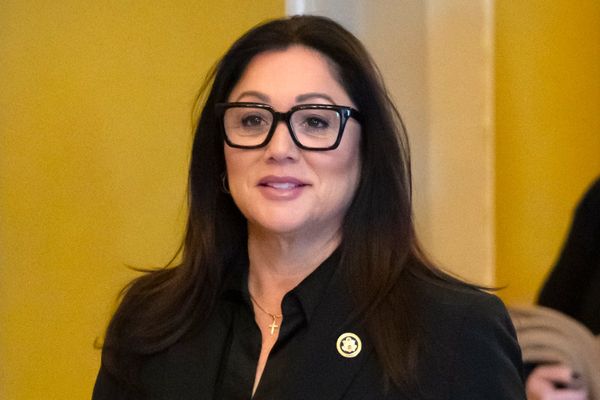
Hong Kong (AFP) - The pound hit a record low against the dollar Monday on surging fears about the UK economy after the government unveiled a huge tax-cutting budget.
The selloff came as equity markets across Asia and Europe fell again owing to a growing expectation that central bank interest rate hikes to fight runaway inflation would lead to deep and painful recessions.Oil also suffered more hefty selling.
Officials in several countries including the United States, Britain, Switzerland and Sweden announced more increases in the cost of borrowing.
The moves sent equity markets deep into the red again after officials reiterated their focus on fighting inflation, even if that means causing a recession.
But the biggest casualty of the week was the pound, which fell below $1.10 for the first time since 1985 as new finance minister Kwasi Kwarteng announced his controversial mini-budget.
It then extended the losses Monday to briefly touch an all-time low of $1.0350 in Asian trade after he said he intended to unveil further reductions, despite his budget causing ructions on London's markets.
It also fell to a two-year low against the euro, though the single currency remains under pressure against the dollar, sitting at 2002 levels.
Now, observers are warning that the pound could fall even further.
"The pound's crash is showing markets have a lack of confidence in the UK and that its financial strength is under siege," said Jessica Amir, of Saxo Capital Markets.
"The pound is a whisker away from parity and the situation is going to only worsen from here."
Kwarteng, who was appointed by Liz Truss after she became prime minister earlier this month, said he planned to slash taxes to kickstart the British economy and provide cash to cushion families from rocketing energy costs.
But investors were spooked by the huge amount of borrowing likely needed for the multi-billion-pound package, which critics said would benefit the rich far more than the poorest during a cost-of-living crisis.
Sterling's drop has led to speculation the Bank of England will have to step in with an emergency interest rate hike to give the currency a much-needed shot in the arm.
'Macau casinos soar'
"Whether or not the UK government announcement of the biggest tax reduction since 1972...will in time yield a significant growth dividend is not something markets are yet willing to contemplate," said National Australia Bank's Ray Attrill.
"Instead, they were consumed by worries over the scale of near-term UK government financing needs, at a time when the current account deficit is running at more than eight percent of GDP."
He added: "Chatter about a possible UK sovereign rating downgrade has already begun."
And former US treasury secretary Lawrence Summers was scathing of Britain's recent monetary policy decisions.
"It makes me very sorry to say, but I think the UK is behaving a bit like an emerging market turning itself into a submerging market," he told Bloomberg Television's Wall Street Week last week.
"Between Brexit, how far the Bank of England got behind the curve and now these fiscal policies, I think Britain will be remembered for having (pursued) the worst macroeconomic policies of any major country in a long time."
The collapse in sterling came as markets across the world are sent into a spin by recession worries caused by a sharp tightening of monetary policy by central banks fighting decades-high inflation.
New York's three main indexes ended well down, with the Dow at a two-year low, and Asia followed suit.
Tokyo shed more than two percent as traders there returned from a long weekend break, while Seoul was off more than three percent, with Sydney, Shanghai, Mumbai, Singapore, Taipei and Jakarta also tanking.
Hong Kong was also down having reversed early gains that came after the city said it would relax strict hotel quarantine measures for international travellers.
Still, Macau casino stocks rallied as the city said it would accept Chinese tour groups again from November, having been blocked during the pandemic.
London edged up tentatively after Friday's hammering, while Paris and Frankfurt were also higher.
Oil prices ticked lower, extending the big losses suffered Friday as expectations that a recession is looming hammer demand expectations.
The surging greenback added to the sell-off in crude, which is priced in dollars and therefore ore expensive for buyers using other currencies.
Both main contracts are sitting at their lowest levels since January, having wiped out all the gains seen in the wake of Russia's invasion of Ukraine.
Black Gold Investors' Gary Ross described the strong dollar as "a wrecking ball for commodities".
Key figures at around 0810 GMT
Pound/dollar: DOWN at $1.0700 from $1.0852 on Friday
Euro/pound: UP at 90.40 pence from 89.28 pence
Euro/dollar: DOWN at $ 0.9673 from 0.9695
Dollar/yen: UP at 143.96 yen from 143.31 yen
London - FTSE 100: UP 0.3 percent at 7,039.64
Tokyo - Nikkei 225: DOWN 2.7 percent at 26,431.55 (close)
Hong Kong - Hang Seng Index: DOWN 0.4 percent at 17,855.14 (close)
Shanghai - Composite: DOWN 1.2 percent at 3,051.23 (close)
West Texas Intermediate: DOWN 0.2 percent at $78.58 per barrel
Brent North Sea crude: DOWN 0.4 percent at $85.84 per barrel
New York - Dow: DOWN 1.6 percent at 29,590.41 (close)







